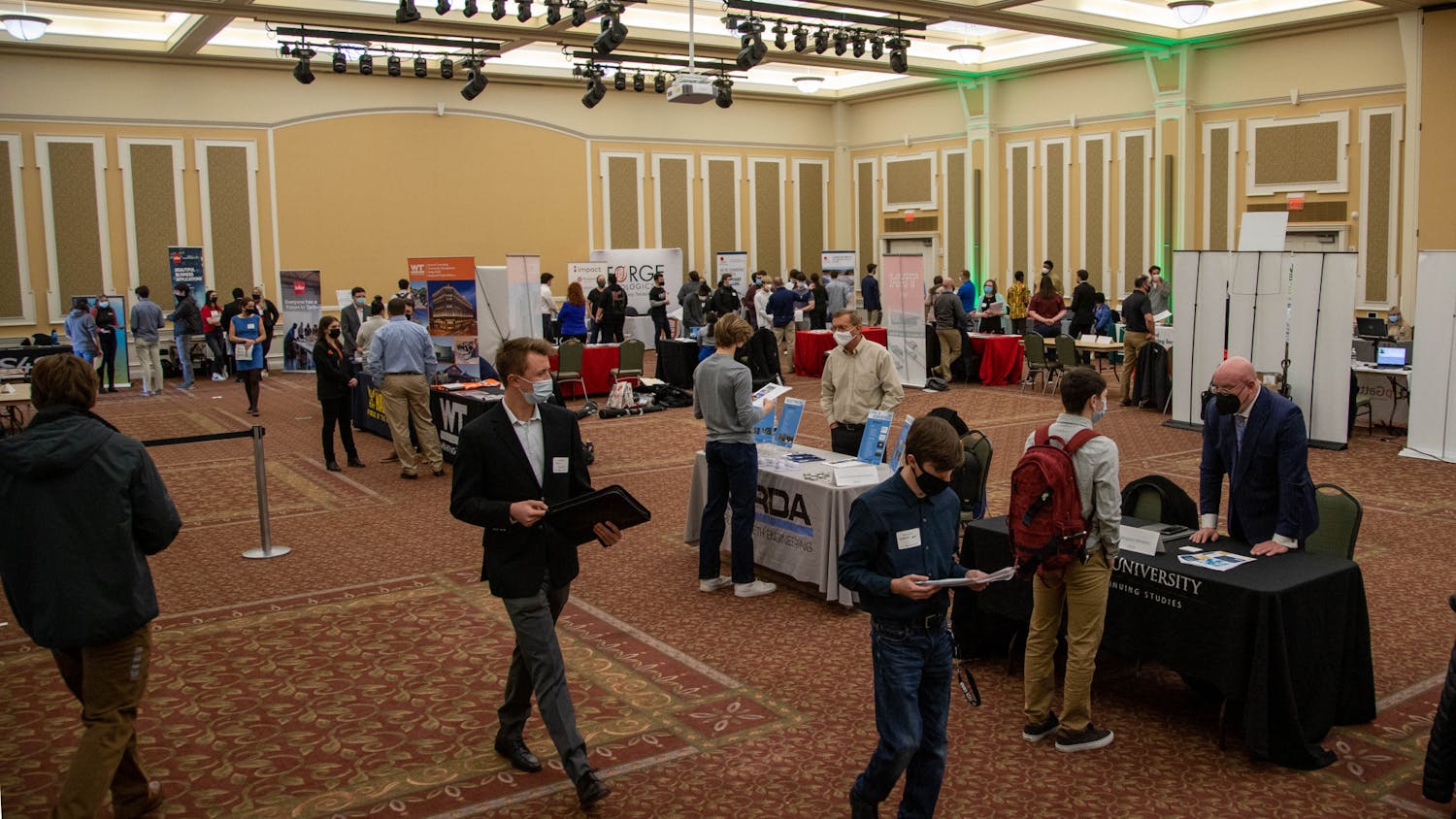In 1992, Barry C. Scheck and Peter J. Neufeld, both American lawyers, founded the Innocence Project, originally as a law clinic, at the Cardozo School of Law at Yeshiva University in New York City.
Today, the Innocence Project is an independent nonprofit organization, according to its website, seeking to exonerate those who have been wrongfully convicted for crimes and to reform the criminal justice system that incarcerated them.
Students at Ohio University are passionate about doing the same. The Ohio Innocence Project, or OIP, has a chapter at OU where students support the state’s organization, located in Cincinnati and the University of Cincinnati’s College of Law, in freeing the innocent.
Alex Moore, a sophomore studying psychology, is the newly-elected president of OIP at OU.
“We advocate for those who can’t advocate for themselves because they’re in prison and are trying to advocate that they are innocent,” Moore said. “Unfortunately, there are many of them that are innocent. The Ohio Innocence Project can’t take on all the cases so mostly we just help raise awareness on the issue and help educate people that don’t know or are unaware.”
Since the establishment of the Ohio Innocence Project at the University of Cincinnati’s College of Law in 2003, the organization has helped exonerate 42 wrongfully convicted Ohioans who, all together, served more than 800 years “behind bars,” according to Cincinnati College of Law.
On April 4, Kenny Phillips and Michael Sutton, from Cleveland, came to OU to share their stories of being wrongfully convicted and then exonerated. Phillips and Sutton spent more than 14 years in prison, according to University of Cincinnati News, after being convicted of attempted murder of a police officer. Phillips was sentenced to 61 years in prison while Sutton was given 41 years despite prosecutors lacking evidence connecting the two to the crime.
Caroline Rhude, a junior studying Spanish and social work and the treasurer of OIP at OU, said the event helped broaden perspectives about who is more likely to be wrongfully convicted of crimes.
Since 1989, according to The National Innocence Project and as written about in The Voice of Black Cincinnati, 375 people have been exonerated through DNA testing.
There are no detailed demographics published about Ohio prisoners who have been exonerated, according to The Voice of Black Cincinnati, an organization “designed to educate, recognize and create opportunities for African American in the region,” but, nationally, over 60% of exonerees are people of color.
“I don’t think that’s talked about and so looking at everything from a racial perspective I think is so important,” said Rhude.
Esme Miranda, the secretary of OIP at OU and a sophomore studying political science, said the wrongful conviction events are one of their favorite parts about the organization. Miranda will also be interning with the OIP based in Cincinnati over the summer.
“It’s always interesting,” Miranda said. “It’s sad but it’s interesting to know how this stuff happens and why it happens.”
The OIP at OU is hosting an event April 28 from 4:30 to 6:30 p.m. on College Green called “Cornhole for a Cause,” which will include guest exoneree Robert McCleendon. To compete, students can pay $5 to play individually or register a team for $10. Non-students who want to play individually pay $10 and then $20 per team.
“We’re competing against Miami University to (see) who can raise the most money because they also have a chapter of OIP there,” Moore said. “So we’re seeing who can raise the most money. We’re hoping that will bring people out.”
OIP at OU meets biweekly on Wednesdays at 6:00 p.m. in Bentley room 23. The organization’s last meeting will be on April 19.
Although listening to the stories of people who were wrongfully convicted and served prison time can be difficult, OIP at OU brings awareness to reform and change that could one day ensure no one is convicted of a crime they did not commit.
“I think for me, just being able to hear their stories and … the fact that they’re willing to share their story, that very traumatic experience, I just feel really grateful,” Rhude said. “I just think it’s a really brave thing to do.”






